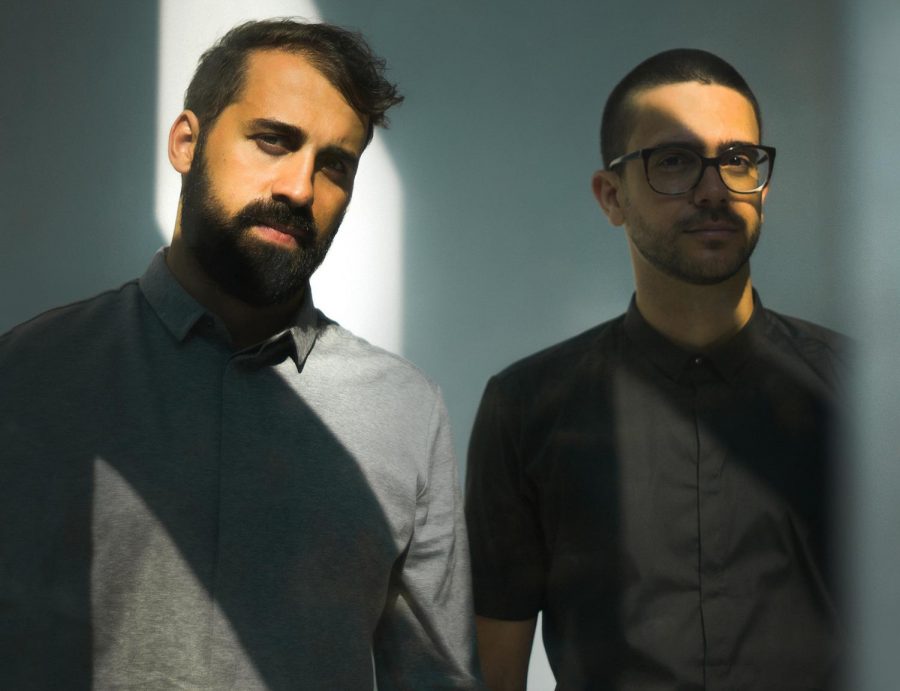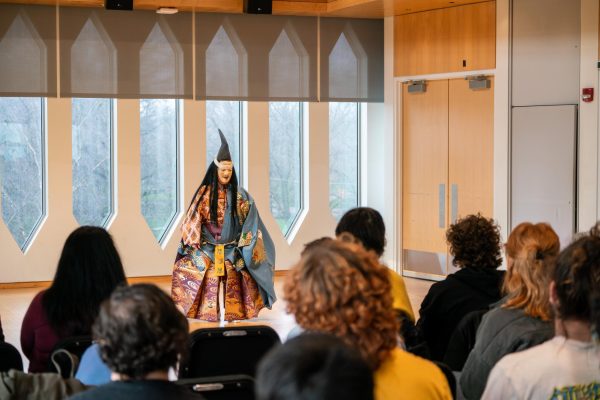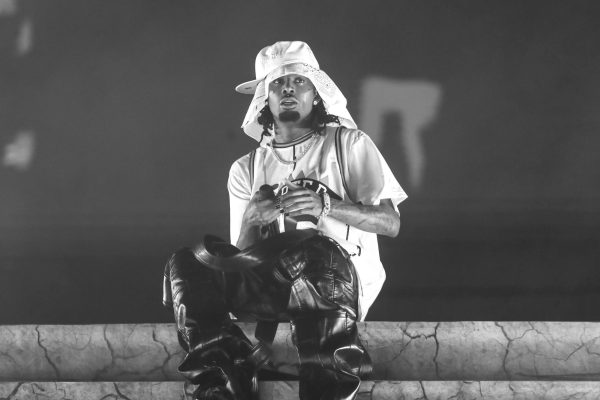Grandbrothers Return with Stunning Second LP
Pianist Erol Sarp and engineer Lukas Vogel released their new LP, Open, Oct. 20.
If you asked me what I think the most beautiful music in the world is, I would probably mention a Dvorak symphony, Bon Iver’s “For Emma,” or a piece from an obscure folk recording session held by PBS, depending on the day. It’s time to add Grandbrothers to that list.
The German and Swiss experimental duo of pianist Erol Sarp and engineer Lukas Vogel recently released its sophomore LP, Open, after signing to City Slang — the label of Broken Social Scene and Sinkane, among others — over the summer. It’s a plainly gorgeous record, full of more moments of serenity and elegance than I previously thought possible in a full-length LP.
For the uninitiated, Grandbrothers’ sound comes entirely from a grand piano. Sarp, a jazz pianist by trade, plays the instrument’s actual keyboard, while Vogel — who designs synthesizers for Access Music in his day job — plays just about every other part of the instrument available. The group’s piano is rigged with a homemade system of hammers and magnets entirely designed and programmed by Vogel, which turns the familiar instrument into something that sounds equally like a piano, hammer dulcimer, drum sampler, and polyphonic synthesizer all in one.
The result is a unique blend — powered equally by Sarp’s thoughtful, relaxed playing and Vogel’s digital, mechanical effects — that I first heard on “Ezra Was Right,” the group’s lead single from their 2015 debut, Dilation.
With Open, Grandbrothers has done what most groups try and fail to do in follow-up LPs — avoiding a radical departure from the sound that made them great while simultaneously honing and expanding upon it. The music of Open is still fundamentally the same as that on Dilation, which is to say that it is almost pure and unrestrained beauty. Listening to it is like watching a timelapse video of an entire month or year passing — watching the sun rise, leaves turn, snow fall, and flowers bloom all in the span of a few minutes, without having to actually wait through the seasons. It is thick, dense music, full of moments whose brilliance can easily go unnoticed even after many listens. Very few albums can achieve that.
Simultaneously, Open feels subtly new, with tracks like “1202” and “Long Forgotten Future” that lend it a more ambient and synthesizer-like quality than Dilation had. Vogel’s expanded effects palette is also a clear feature, having added things like distortion and bitcrushing, both of which he uses masterfully. “From a Distance,” one of the group’s most electronic-sounding tracks to date, feels straight off of a Tron soundtrack with the use of such effects, and in that way Grandbrothers are in good company — the Tron films were first scored by synth legend Wendy Carlos and later by Daft Punk.
Even more impressively, Open is totally free of duds or tracks that fail to achieve their potential. On Dilation, things weren’t entirely figured out, leading to songs like “Arctica” and “Ghost Clock,” which were hard to listen to amongst Dilation’s moments of genius and made an otherwise impressive album feel slightly confused and incomplete.
Open, by contrast, manages to be almost totally cohesive from one song to the next, even though each has a slightly different feel. “Honey” is a very typical Grandbrothers track, with strong, blocky chords; “Sonic Riots” provides one of the band’s danceable grooves to date; and “Alice” shows that Grandbrothers can also deliver a simple, elegant lullaby, complete with their signature dulcimer-like sound.
The album is at its best, however, on “Bloodflow.” The album’s lead single is a nearly six-minute jam that integrates Sarp’s grace and Vogel’s barrage of electronic fog more masterfully than the rest. Its pulsating undercurrent gives the song a feel that is true to its name, a flow that undulates back and forth with every beat. “Circonflexe” comes in a close second and sounds the most new amidst Grandbrothers’ catalog, a fresh take on the band’s typical balance of electronics and piano.
At the same time, if Open falls short anywhere, “Circonflexe,” is a case study, precisely because it’s the only track that came as any sort of surprise. That’s not a bad thing — Grandbrothers’ typical style works immensely well, and the band has shown that they know their strengths and aren’t willing to just toss away something good. But the question is, when the time comes to shatter the paradigms that made them great and do something new, will they be able to do so? If so, then perhaps “Circonflexe” offers an answer in terms of a possible future.
In the meantime, though, we have Open, Sarp and Vogel’s second, beautifully executed opus. It’s a deep, complex, and satisfying record — one that I’ll be listening to for a long time. If you feel in need of music in which to lose yourself on a roadtrip home or a late-night walk, the beautiful haze of Open is just the place.








